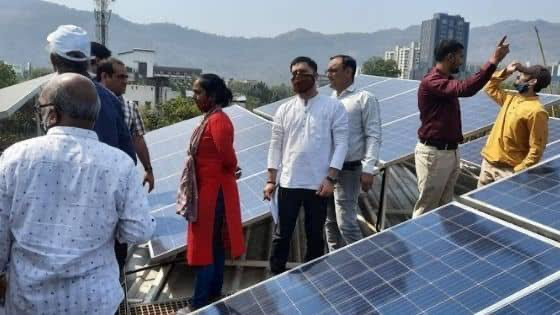22 female engineering students from South Africa are getting ready to travel to India in a historic move that would empower female students in the technical and vocational education field. They will receive specialized training in the production of solar panels there, giving them the tools they need to both support and profit from the renewable energy industry.
The Minister of Women, Youth, and Persons with Disabilities, Dr. Nkosazana Dlamini Zuma, is leading the effort in coordination with the Energy and Water Sector Education and Training Authority (EWSETA). The statement last Friday was a turning point in South Africa’s history of vocational training.
The selected participants hail from the provinces of Limpopo, North West, and Free State, and are all enrolled in engineering courses at Technical and Vocational Education and Training (TVET) colleges. This training program is not just a standalone project; it is part of a broader resolution passed during the BRICS Women in Business meeting—an initiative stemming from South Africa’s 2023 chairship of BRICS, a cooperative group including Brazil, Russia, India, China, and South Africa.
According to the Department of Women, Youth and Persons with Disabilities (DWYPD), this program is a call to action for women to spearhead community projects and address the energy shortages particularly affecting rural areas in South Africa. The DWYPD emphasized the critical role that access to electricity plays in societal functionality, declaring it an essential service that should be readily accessible to all, a sentiment strongly echoed by Minister Dlamini Zuma.
The goal of the solar technology training program is to combine theoretical knowledge with practical skills to offer a thorough education in the production and installation of solar panels. A coalition of stakeholders, including the National Youth Development Agency (NYDA), the Council for Scientific and Industrial Research (CSIR), the EWSETA, and the Department of Mineral Resources and Energy, support this strategic project.
There is a significant chance that this program will lead to job prospects. The DWYPD demonstrated how profitable it is to launch and run a solar business in South Africa, including everything from the production of panels and batteries to the sale of goods that run on solar energy. The department intends to continue working with the Department of Trade, Industry and Competition and the Department of Small Business Development in conjunction with EWSETA in order to help business ventures for these women upon their return in August 2024.
The first day of the program is set for May 1, 2024. It is a big step toward gender equality in a historically male-dominated area by bringing more women into the renewable energy business. In addition to fostering personal growth, this program hopes to spur innovation in sustainable energy solutions and advance community-wide progress, providing a strong model for similar initiatives around the world.



